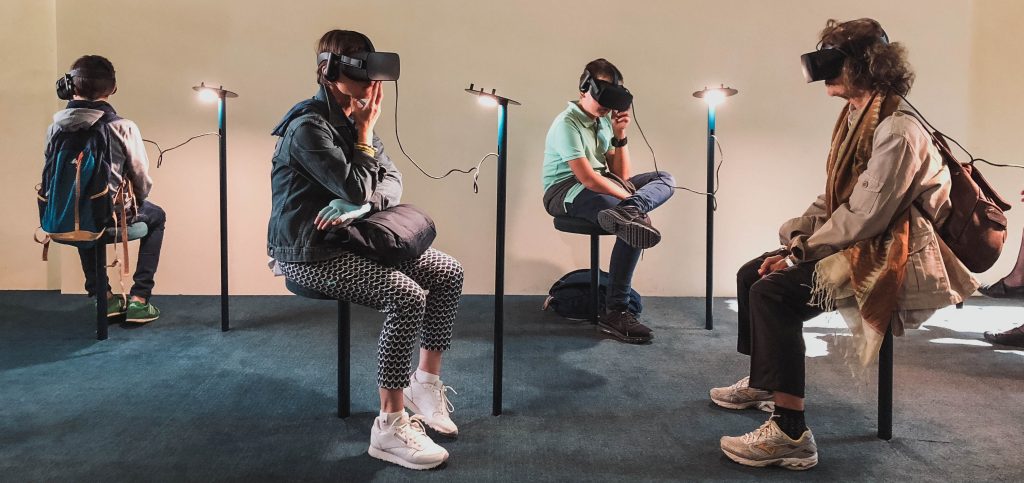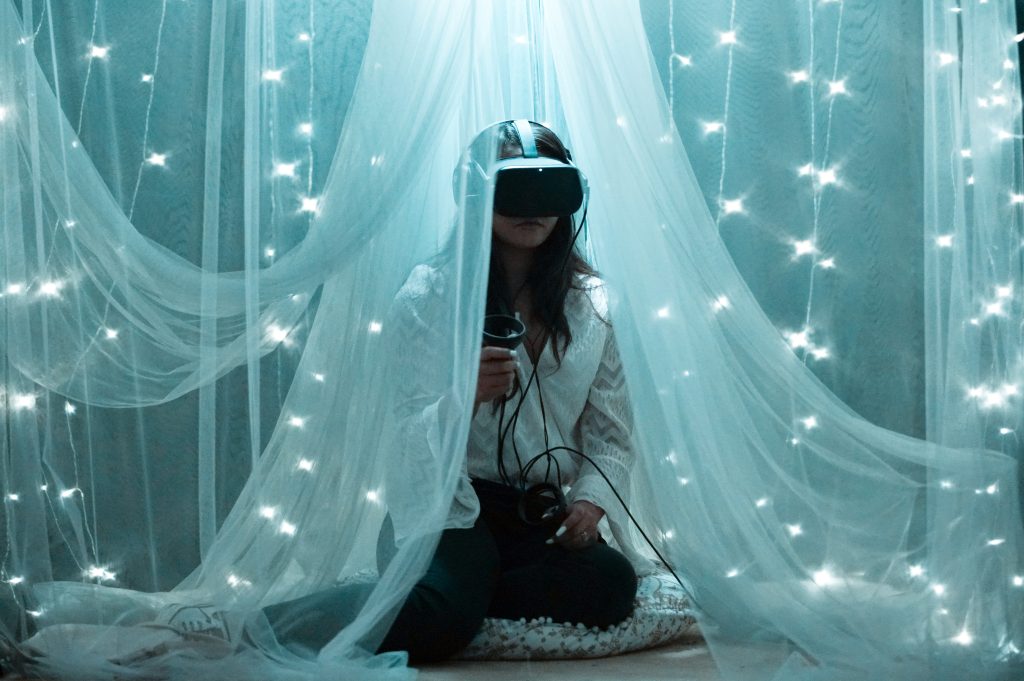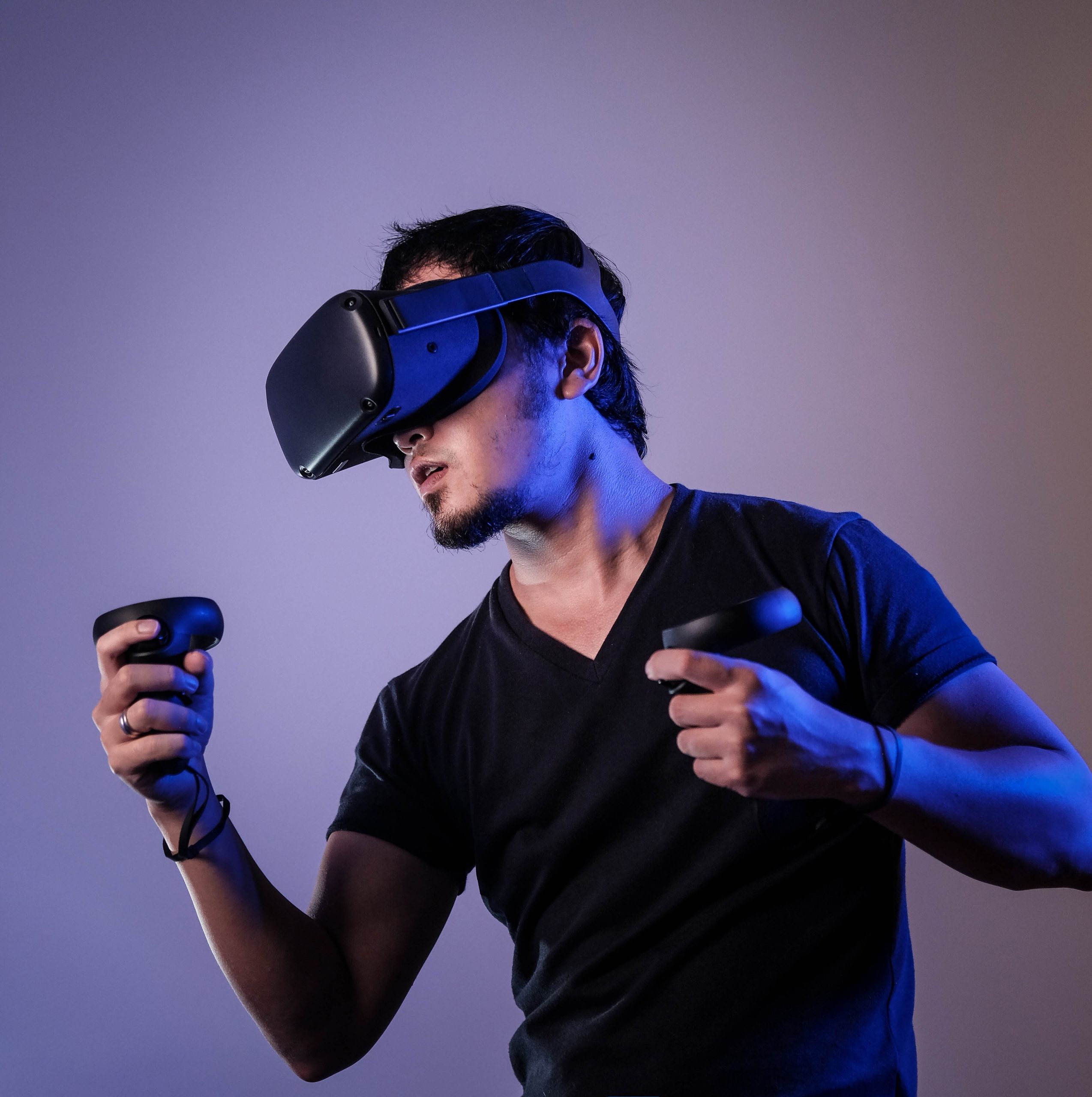The world of social media we inhabit in constantly changing and evolving over time, with trends and platform features coming and going. Will Virtual Reality social media play a major part in things to come? As fully immersive virtual worlds become more accessible, affordable and user friendly, can we see ourselves hanging out with our friends through VR instead of in real life? Technology is catching up with our Sci-Fi fantasies, but is this what we want?
What is Virtual Reality?
The vague idea of Virtual Reality (VR) has been around for centuries. The first 3D images can be traced back to the 1830s, and the 1930s brought the patent for the ‘View-Master Stereoscope,’ a device designed for “virtual tourism.” But the concept of VR as we know it now came in 1965. ‘The Ultimate display’ by Ivan Sutherland was a “concept that could simulate reality to the point where one could not tell the difference from actual reality.” We have been striving to achieve this ever since.
However, it’s only in the last 10 years that technology has advanced enough to begin fulfilling these ambitions. Head mounted displays show increasingly pristine images. Motion sensors are more and more sensitive and accurate. The use of sound is directional. The purpose of VR devices has mainly been entertainment so far: video games and fun immersive experiences. It’s only fairly recently that the use of VR in social media settings has really taken off.
What can Social Media currently do with VR?
There’s already a lot of different ways to use VR socially. People can create avatars to use in VR worlds, whether it be a representation of themselves or a character. They can then interact with other people’s own avatars online in those worlds. Obviously this isn’t new or unusual; we’ve had social games like Second Life and Habbo Hotel, and MMOs like World of Warcraft and Runescape, since the early 2000s. The new element is the ability for it to be completely immersive. You’re not playing with an avatar on your screen, you are in the world, blurring the lines of reality.
The social possibilities of these worlds are seemingly increasing by the day. Right now, you can not just hang out with other users, but do it in a virtual home of your own design. You can watch movies, TV, concerts together in universe, as if doing so in real life. You can play games; not only video games but board games and role playing games. You can even exercise with others, if home exercise alone isn’t giving you motivation. Right now the user base for social VR is still fairly small, as VR technology has been expensive and rare. However, popularity has sharply increased over the past couple of years, as companies move to bring this to the masses.

Plans for the Future of VR
In 2021, the word Metaverse came to the forefront of the public consciousness with new announcements from social media and technology companies about future endeavors. The term metaverse has been around for decades, but our understanding of it has shifted to refer to something specific. Flexible plans for the metaverse involve the development of an entirely virtual universe where one would be able to carry out all online activity, such as gaming, shopping, socialising, etc. However, it aims to go beyond that, putting those activities in to a 3D world to reflect reality. This would be accessible through phones, PCs, cloud servers and, importantly for the medium, Virtual Reality technology. As with current VR worlds, you would use an avatar of yourself to navigate everything in “digital neighborhoods, parks and clubs [that] will spring up, possibly in a single virtual world or spread across many.”
The Pros and Cons
Developments in social VR could bring some interesting opportunities. Relationships can feel flat and unfulfilling when left to texting and social media. Can socialising through avatars in virtual worlds make online interactions more emotionally fulfilling? Can adding another dimension to our social media experience solve the problems of loneliness and isolation it has previously caused? Additionally, new technological innovations can be exciting, as we move beyond the realm of what we thought possible.
However, these plans raise several concerns. Firstly, we again encounter ever growing problems with online privacy and security. Both of these will become even more compromised with a complete shift of our lives online. This is especially true if all of our data moves to a single location; no platform will ever be completely impenetrable.
Secondly, we have the issue of self-esteem, and inaccurate representation of people online. It’s bad enough when the vision of yourself and others you’re presented with online is severely doctored and edited, but what about when it’s an entire body? An entire character? At that point, who even is the real you anymore? Anyone’s self-esteem can suffer if they spend the day walking around a VR universe as the perfect version of themselves.
Lastly, there’s the risk of increased social isolation. As a society, we were already plagued by loneliness before the pandemic started. Now we feel its effects even more. An increased move to online activities reduces our social contact in real life, and removes opportunities for meaningful in-person connections. No matter how realistic the virtual world and our interactions within it become, it won’t replace the subtle value of meeting others in real life.
So…
Based on how social media has shaped society and affected us as individuals thus far, I think we can predict the cons outweighing the Pros in a world dominated by the metaverse. It could drive us more towards a sci-fi dystopia rather than the futuristic utopia we’ve been told to expect. Greater value and focus needs to be placed on the importance of real life human interaction.


